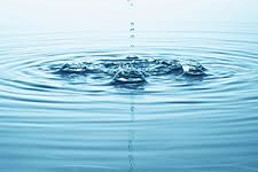Islam is a religion of complete purity and cleanliness. Islam advocates adopting purity and cleanliness in all departments of human living. Hazrat Rasulullah (sallallahu ‘alaihi wasallam) said:
الطهور شطر الإيمان
In fact, Islam has adequately guided us and shown us the way to remain pure internally and externally. Just as we are commanded to remain physically pure by adopting physical and oral hygiene, we are also commanded to remain spiritually pure by protecting our hearts and minds from sins e.g. jealousy, pride, greed, etc. Allah Ta‘ala mentions in the Quraan Majeed:
قَدْ اَفْلَحَ مَنْ تَزَكّٰى
Indeed he who has attained inner purity is successful. [2]
If one has to view the various injunctions of Shari’ah e.g. making istinjaa after relieving oneself, making wudhu for performing salaah, cleansing the mouth with the miswaak upon awakening, before performing salaah, when the mouth emits an unpleasant odour, before sleeping, etc., performing ghusl when entering into ihraam or joining the gatherings of Eid or Jumuah, one will realise that Islam is second to none in emphasizing the highest levels of purity and cleanliness in all facets of a person’s life.
Hazrat Rasulullah (sallallahu ‘alaihi wasallam) said, “Four actions are from the sunnats of all the Ambiyaa Q; adopting hayaa (modesty in all spheres of human living), applying itr, using the miswaak, and making nikaah (getting married).”[3]
When we examine the actions mentioned in the above Hadith, we find that they all relate to acquiring internal and external purity.
On the other hand, there are severe admonishments and punishments recorded in the Ahaadith for neglecting cleanliness. Through remaining negligent in cleansing oneself, one will remain impure, thereby causing one’s salaah and other ibaadaat for which cleanliness is a prerequisite to be invalid. Similarly, through neglecting oral and physical hygiene, one will be a cause of inconvenience to others.
[1] عن أبي مالك الأشعري قال قال رسول الله صلى الله عليه وسلم الطهور شطر الإيمان (صحيح مسلم، الرقم: 223)
[2] سورة الأعلى: 14
[3] عن أبي أيوب رضي الله عنه قال قال رسول الله صلى الله عليه وسلم أربع من سنن المرسلين الحياء والتعطر والسواك والنكاح (سنن الترمذي، الرقم: 1080) قال أبو عيسى: حديث أبي أيوب حديث حسن غريب
 Ihyaaud Deen An Effort to Revive Deen in Totality
Ihyaaud Deen An Effort to Revive Deen in Totality




